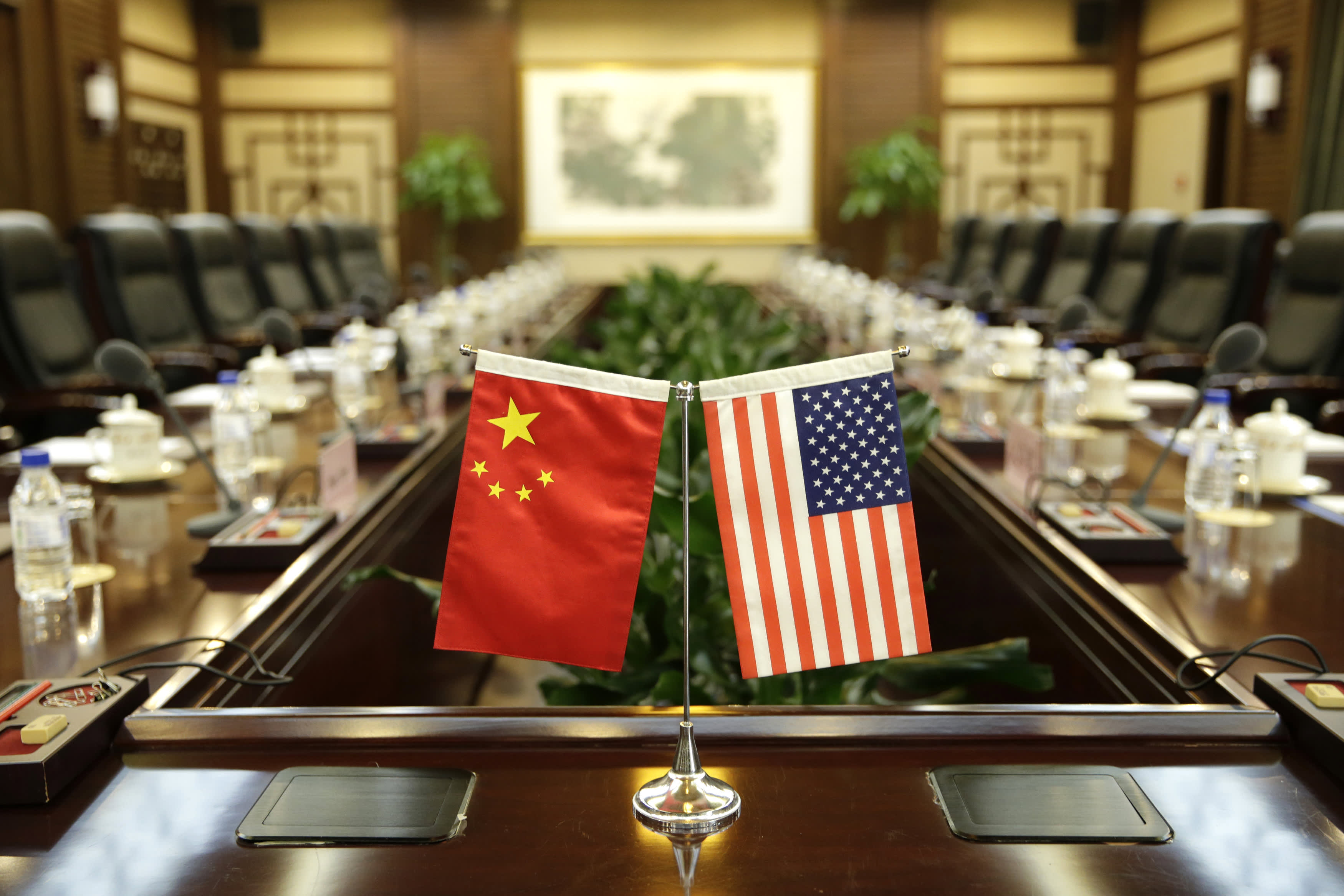
Higher U.S. tariffs on Chinese goods hurt American businesses and consumers, and it would be “wise” to cut those levies, a former American diplomat and trade negotiator said Thursday.
If both countries were to reduce tariffs on each other, their relationship could improve, said Frank Lavin, a former U.S. ambassador to Singapore and undersecretary of Commerce for international trade.
He told CNBC that a “mutual reduction” in tariffs would also allow the U.S. to address longstanding concerns about China’s trade practices.
Lavin was asked what advice he would give to the Biden administration on its policy toward China.
“I would say don’t step away from the issue, there’s some serious trade issues there and I think a lot of President Trump’s criticisms were valid so don’t drop that agenda,” Lavin, now chief executive and founder of consultancy Export Now, told CNBC’s “Street Signs Asia.”
Flags of the U.S. and China displayed on a table ahead of a meeting.
Jason Lee | AFP | Getty Images
“But I do think that in the same breath it would be wise to remove the tariffs because the tariffs hurt American businesses, American consumers, American workers just as they hurt the Chinese economy,” he added.
U.S.-China trade tensions escalated under former President Donald Trump, with both sides slapping higher tariffs on each other’s goods worth billions of dollars. The trade dispute has since spilled into technology and finance.
President Joe Biden‘s administration has signaled that it will continue to be tough on China. U.S. Trade Representative Katherine Tai said last week the administration is conducting “a comprehensive review” of its trade policy with China.
Companies from the U.S. and other countries have long complained about unequal access to the Chinese markets, lack of intellectual property protection and forced technology transfer.
Chinese President Xi Jinping has said Beijing will continue to work with other countries and cut tariffs — though he did not specifically mention the U.S. by name.
Still, Lavin said the U.S. could hold Xi to his word in pursuing a reduction in tariffs and improved relationship.
“So I’d say if we can just have a mutual reduction in those tariffs, we’re going to have a better working relationship,” said Lavin. “And then let’s start tackling some of these trade issues one by one and help China move to world norms.”
— CNBC’s Evelyn Cheng contributed to this report.




